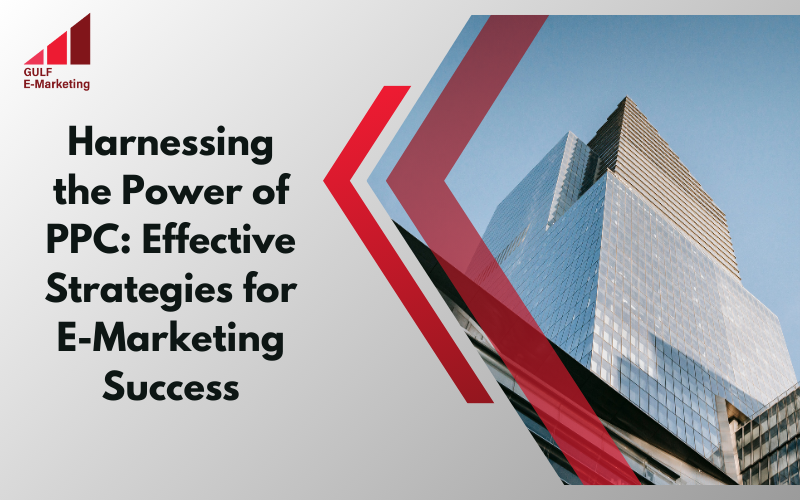- August 23, 2024
- Pay Per Click Advertising
- 0 Comments
In the competitive landscape of e-marketing, standing out amidst the sea of digital noise is a constant challenge. One effective solution lies in Pay Per Click (PPC) advertising—a model that promises targeted exposure and measurable ROI. This blog explores the intricacies of PPC strategies, emphasizing their role in elevating e-marketing efforts and achieving business objectives.
Understanding Pay Per Click (PPC)
At its core, PPC is a form of online advertising where advertisers bid on keywords relevant to their business. Each time a user clicks on an ad, the advertiser pays a fee, hence the term “pay per click.” The cost per click (CPC) varies depending on the competition for the chosen keywords, making PPC a dynamic and responsive channel for reaching potential customers.
Key Components of Successful PPC Campaigns
- Keyword Research
The foundation of a successful PPC campaign lies in meticulous keyword research. Identifying the right keywords is crucial for attracting the right audience. Tools like Google Keyword Planner, SEMrush, and Ahrefs can aid in uncovering high-volume, low-competition keywords that align with your business goals.
- Bid Optimization
Optimizing bids is a critical aspect of PPC management. Balancing the desire to rank higher in search results with the need to control costs requires careful analysis and adjustment. Using automated bidding strategies or manual adjustments based on performance data can help achieve optimal CPCs.
- Ad Copywriting
Crafting compelling ad copy is essential for capturing attention and encouraging clicks. Ads should clearly communicate the value proposition, include relevant keywords, and prompt action. Testing different ad copies against each other can reveal what resonates best with your target audience.
- Landing Page Optimization
Once a user clicks on an ad, the landing page plays a crucial role in converting visitors into leads or customers. Ensuring that the landing page is optimized for mobile devices, contains relevant information, and includes a clear call-to-action can significantly increase conversion rates.
Advanced PPC Tactics for E-Marketing
Remarketing
Remarketing allows you to target users who have previously interacted with your website or ads, offering a second chance to convert them. By retargeting ads to these users, you can increase brand awareness and drive conversions.
Location Targeting
Location targeting enables you to direct your ads to users in specific geographic areas, making it ideal for businesses with physical locations or services available in particular regions.
Seasonal Campaigns
Leveraging seasonal trends can boost your PPC campaign’s effectiveness. Timing your ads to coincide with peak times for your industry or relevant holidays can increase visibility and engagement.
Measuring PPC Performance
Tracking the performance of your PPC campaigns is vital for identifying successes and areas for improvement. Metrics such as click-through rate (CTR), conversion rate, cost per acquisition (CPA), and return on ad spend (ROAS) provide insights into how well your campaign is performing and whether adjustments are needed.
Conclusion
PPC advertising offers a powerful tool for businesses looking to increase their online visibility and drive targeted traffic. By employing effective keyword research, bid optimization, compelling ad copy, and optimized landing pages, businesses can harness the full potential of PPC. Additionally, advanced tactics like remarketing, location targeting, and seasonal campaigns can further enhance campaign performance. Ultimately, the key to successful PPC lies in continuous measurement and refinement, ensuring that your e-marketing efforts yield maximum returns.



